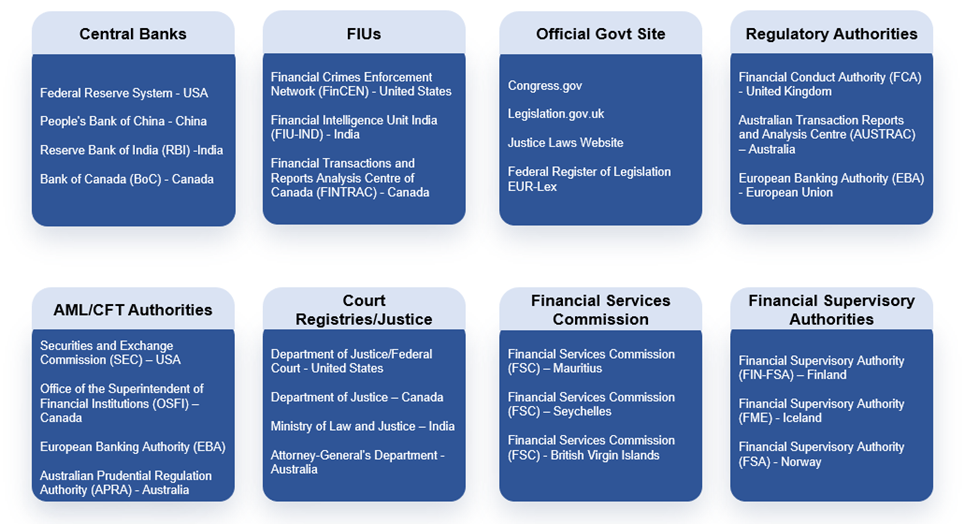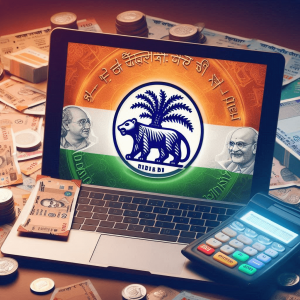- 7 minutes read
Which PEP Definition To Follow: Global Or Local?
Politically Exposed Persons (PEPs) are individuals who hold or have held prominent public positions and are consequently at higher risk for involvement in bribery, corruption, and other financial crimes. Understanding the definition of PEPs is crucial for banks, financial institutions, and other regulated entities tasked with implementing Anti-Money Laundering (AML) and Counter-Terrorist Financing (CTF) measures. The question often arises: should these institutions follow local or global definitions of PEPs? This article explores the nuances of both approaches and offers guidance on how to navigate this critical aspect of financial compliance.

The Financial Action Task Force (FATF), an international body that sets standards for combating money laundering and terrorist financing, provides a comprehensive framework for defining PEPs. The Definition by FATF is considered as the global definition of PEPs. According to FATF, PEPs are categorized into three main groups:
Foreign PEPs
Individuals who are or have been entrusted with prominent public functions by a foreign country, such as heads of state, senior politicians, senior government officials, judicial or military officials, senior executives of state-owned corporations, and important political party officials.
Domestic PEPs
Individuals who hold or have held prominent public positions domestically, similar to foreign PEPs but within the same country.
International Organization PEPs
Individuals entrusted with prominent functions by international organizations, including senior management members such as directors, deputy directors, and members of the board.
Different countries and jurisdictions have specific definitions for Politically Exposed Persons (PEPs) based on their legal frameworks and anti-money laundering (AML) regulations. In the U.S., the Financial Crimes Enforcement Network (FinCEN) focuses on senior foreign political figures and their associates. The UK’s regulations cover both foreign and domestic PEPs, while Canada’s guidelines distinguish between the two and include heads of international organizations. These definitions, found in national AML regulations and directives, ensure anti-money laundering measures are suited to each jurisdiction’s context.
While the FATF framework offers a solid foundation, local variations in governance structures necessitate country-specific definitions for PEPs. Here’s why:
Specificity in Roles
The FATF categories are broad. A country-specific definition can clarify which specific government positions, military ranks, or state-owned enterprise positions qualify as PEPs.
Local Political Landscape
The level of risk associated with a PEP can vary depending on the country's political stability and history of corruption. A local definition can highlight positions with a demonstrably higher risk profile.
Transparency
Publicly available lists of PEPs designated by national authorities enhance screening accuracy.
Family and Associates
The definition of "close associates" can differ across countries. Local regulations may specify the degree of kinship or the nature of business relationships considered high-risk.
Government Structures
Government structures vary significantly across countries. For instance, some countries might have a federal system with powerful regional governments, requiring the inclusion of regional officials in the PEP definition.
State-Owned Enterprises (SOEs)
The level of influence and control over SOEs can differ. A country might designate senior management of all SOEs as PEPs, while another might focus only on strategic sectors like oil and gas.
Former PEPs
The risk associated with a former PEP diminishes over time. Local definitions may specify a period after leaving office when an individual remains a PEP.
Sources For Country-Specific Definitions (Local Definitions)
Local definitions are typically detailed in country-specific AML/CFT acts and laws. These can be found on the websites of central banks, financial intelligence units (FIUs), government portals, regulatory authorities, court registries, financial service commissions, and supervisory authorities.

Examples of Country-Specific (Local) Definitions
Let’s delve deeper into how various countries define Politically Exposed Persons (PEPs) beyond the global framework provided by the FATF. Here, we’ll explore the unique approaches of some nations:
1. India: Strong KYC and Due Diligence Focus (Source: Reserve Bank of India)
India's Prevention of Money Laundering Act (PMLA) offers a detailed definition encompassing both domestic and foreign PEPs. It emphasizes the importance of robust Know Your Customer (KYC) processes and thorough due diligence for these individuals. This signifies a heightened awareness of potential money laundering risks associated with PEPs.
2. France: Aligning with the EU (Source: Legifrance and European Union)
France's definition in Article R. 561-18 of the Monetary and Financial Code aligns with the European Union's Fourth and Fifth Anti-Money Laundering Directives (AMLD4 & AMLD5). It identifies PEPs as those holding significant public roles, including heads of state, government officials, and high-ranking corporate officers. France further extends its definition to include family members and close associates with beneficial ownership ties, reflecting the EU's comprehensive approach.
3. Russia: A Broad Spectrum of Public Positions (Source: Central Bank of Russia)
Russia's Federal Law No. 115-FZ casts a wide net when defining PEPs. It encompasses a diverse range of public positions, including national leadership roles, officials within federal territories, and individuals holding positions in legislative bodies and the judiciary. This expansive definition ensures comprehensive coverage and emphasizes the importance of enhanced due diligence measures.
4. New Zealand: Time-Bound and Family-Centric (Source: Reserve Bank of New Zealand)
New Zealand's Anti-Money Laundering and Countering Financing of Terrorism Act (AML/CFT Act) defines a PEP as someone who has held a significant public role overseas within the past 12 months. This time-bound approach differs from some other countries. Additionally, New Zealand includes immediate family members and those with close beneficial ownership ties in its PEP definition, highlighting the potential risk associated with a PEP's inner circle.
5. United Kingdom: Specificity and Close Associates (Source: UK Government Legislation)
The UK's Money Laundering, Terrorist Financing, and Transfer of Funds Regulations (MLR 2017) provide a clear definition of PEPs, excluding middle-ranking or junior officials. It details specific roles like heads of state, government ministers, and executives of state-owned enterprises. The UK definition also encompasses family members and known close associates with financial ties to PEPs, demonstrating a focus on potential vulnerabilities within a PEP's network.
6. Canada: Domestic and Foreign PEP Distinction (Source: Financial Transactions and Reports Analysis Centre of Canada)
Canada's Proceeds of Crime (Money Laundering) and Terrorist Financing Act (PCMLTFA) differentiates between domestic and foreign PEPs. Domestic PEPs encompass high-ranking officials within the federal or provincial governments, while foreign PEPs hold similar positions in other countries. This distinction is crucial for Canadian financial institutions operating internationally.
By examining these examples, we gain a deeper understanding of how countries tailor PEP definitions to their specific political structures and risk environments. This highlights the importance of considering both global and local regulations when navigating the complexities of AML/CTF compliance.
Differences Between Global and Local Definitions
Scope and Specificity
Global definitions, such as those by FATF, offer broad categories that apply internationally. Local definitions are more specific and tailored to a country's political and social environment.
Legal Requirements
Compliance with local definitions is mandatory for financial institutions operating within a specific jurisdiction. Global definitions serve as guidelines and best practices.
Risk Focus
Local definitions often reflect the unique risk profiles associated with a country's political and economic environment, aiding in better risk assessment and management.
Balancing Local and Global Definitions
Balancing local and global definitions of PEPs is challenging for financial institutions. They must comply with local laws and regulations while incorporating global guidelines. Adopting a risk-based approach that integrates both local and global definitions, with enhanced due diligence for identified PEPs, is a common strategy. For multinational institutions, harmonizing policies across jurisdictions is crucial to ensure consistent and effective risk management practices.
Importance of Local Definitions for AML Screening
1. Risk Management
Accurate identification of PEPs aids in managing and mitigating risks associated with money laundering and corruption.
2. Regulatory Compliance
Adhering to local definitions ensures compliance with national laws, avoiding legal penalties and reputational damage.
3. Enhanced Due Diligence
Tailored definitions support more precise and effective due diligence processes.
4. Global Alignment
Aligning local definitions with global standards facilitates international cooperation and strengthens the financial system's integrity.
Conclusion
In AML/CTF compliance, following local or global definitions of PEPs is not an either-or scenario. Financial institutions must ensure compliance with local regulations while aligning with global standards. By adopting a risk-based approach and harmonizing policies across jurisdictions, institutions can effectively manage PEP-related risks and contribute to the global financial system’s integrity. Understanding both local and global definitions is crucial for robust AML/CTF practices and safeguarding the financial sector from illicit activities.
- #PEP
- #GlobalPEP
- #Compliance
- #RegTech
- #LocalPEP
- #GlobalRegulations
- #FinancialSecurity
- #PoliticallyExposedPersons






